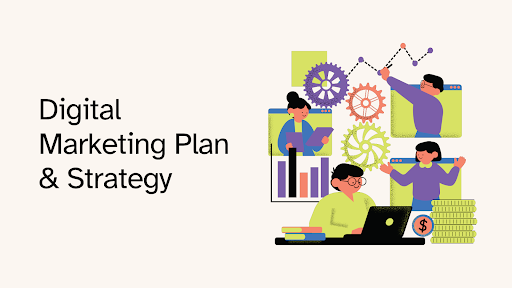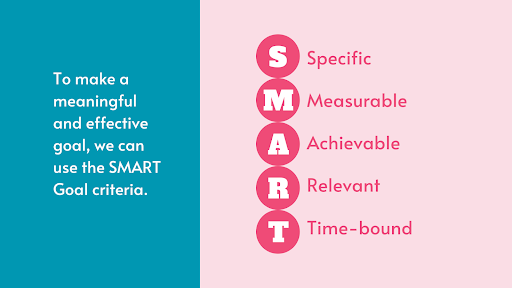In today’s fast-paced digital world, having a robust digital marketing plan is essential for any business aiming to thrive online. A well-crafted digital marketing strategy not only helps in reaching potential customers but also enhances your brand’s visibility, drives engagement, and generates leads. In this blog, we will walk you through the steps to set up an effective digital marketing plan, covering everything from initial research to execution and evaluation.
Creating Effective Digital Marketing Strategies

1. Understanding the Basics of a Digital Marketing Plan
A digital marketing plan is a strategic document that outlines how a business will use digital channels to achieve its marketing objectives. It encompasses various elements, including online advertising, content marketing, social media strategies, and more. Developing a comprehensive marketing plan involves a series of steps that align with your business goals and target audience.
2. Define Your Marketing Strategy
Before diving into the specifics, it’s crucial to define your overall marketing strategy. Your marketing strategy will guide the development of your digital marketing strategy and ensure that all efforts align with your business objectives. Here’s how to craft an effective marketing strategy:

- Identify Your Business Goals: Clearly define what you want to achieve with your digital marketing efforts. Whether it’s increasing brand awareness, driving traffic to your website, or generating leads, your goals should be specific, measurable, achievable, relevant, and time-bound (SMART).
- Understand Your Target Audience: Conduct market research to identify your target audience’s demographics, interests, and online behavior. This will help tailor your digital marketing efforts to meet their needs and preferences.
- Analyze Your Competition: Study your competitors to understand their digital marketing strategies. Identify their strengths and weaknesses to find opportunities for differentiation.
- Develop Customer Personas: Go beyond basic demographics by creating detailed customer personas. Include information such as their pain points, motivations, preferred communication channels, and purchasing behavior. This will help in crafting more personalized and effective marketing campaigns.
3. Develop a Comprehensive Digital Marketing Strategy
Once you have a clear marketing strategy, you can develop a detailed digital marketing strategy. This strategy should outline how you plan to achieve your business goals through various digital channels. Here’s how to build a solid digital marketing strategy:
- Set Clear Objectives: Define specific objectives for each digital marketing channel. For example, you might aim to increase website traffic by 30% in six months or grow your social media following by 20% within the next quarter.
- Choose Your Digital Channels: Select the digital channels that align with your target audience and marketing objectives. Common channels include:
- Search Engine Optimization (SEO): Optimize your website and content to rank higher in search engine results pages (SERPs) and attract organic traffic.
- Content Marketing: Create and distribute valuable content to engage and educate your audience, build trust, and drive conversions.
- Social Media Marketing: Use platforms like Facebook, Instagram, LinkedIn, and Twitter to connect with your audience, share content, and promote your brand.
- Email Marketing: Develop targeted email campaigns to nurture leads, retain customers, and drive engagement.
- Paid Advertising: Leverage pay-per-click (PPC) ads, social media ads, and display advertising to reach a broader audience and achieve specific marketing goals.
- Develop a Content Plan: Create a content calendar that outlines what content you will produce, when it will be published, and on which channels. Ensure your content is relevant, engaging, and aligned with your audience’s interests.
- Implement an Omnichannel Strategy: Ensure that all your digital channels are integrated and work together seamlessly to provide a consistent and cohesive brand experience. This approach helps in delivering a unified message across multiple touchpoints, enhancing customer engagement.
- Allocate Budget and Resources: Determine the budget for each digital marketing channel and allocate resources accordingly. This includes both financial resources and team members responsible for execution.
4. Execute Your Digital Marketing Plan
With your strategy in place, it’s time to put your plan into action. Here’s how to effectively execute your digital marketing plan:
- Implement SEO Best Practices: Optimize your website’s on-page elements, such as title tags, meta descriptions, and header tags, and ensure your content is keyword-rich and valuable to your audience. Build high-quality backlinks to improve your site’s authority.
- Launch Content Marketing Campaigns: Create and publish high-quality content, such as blog posts, infographics, and videos. Promote your content through various channels to reach a wider audience.
- Engage on Social Media: Post regularly on social media platforms, interact with your followers, and participate in relevant conversations. Use social media analytics tools to track engagement and adjust your strategy as needed.
- Run Email Campaigns: Design and send targeted email campaigns based on user segments and behaviors. Use email marketing tools to automate your campaigns and analyze performance.
- Monitor Paid Advertising: Launch and manage paid advertising campaigns on platforms like Google Ads and social media. Track key metrics such as click-through rates (CTR), conversion rates, and return on ad spend (ROAS).
- Leverage Marketing Automation: Use marketing automation tools to streamline repetitive tasks such as email marketing, social media posting, and ad management. This will free up time for your team to focus on strategy and creativity.
5. Monitor and Evaluate Your Digital Marketing Efforts
Continuous monitoring and evaluation are crucial for optimizing your digital marketing plan and achieving long-term success. Here’s how to assess your efforts:
- Track Key Metrics: Use analytics tools to monitor key performance indicators (KPIs) for each digital channel. Common metrics include website traffic, conversion rates, social media engagement, and email open rates.
- Analyze Performance: Evaluate the performance of your digital marketing campaigns against your objectives. Identify what’s working well and what needs improvement.
- Adjust Your Strategy: Based on your analysis, make data-driven adjustments to your digital marketing strategy. This may involve refining your content, reallocating budget, or exploring new channels.
- Implement A/B Testing: Regularly conduct A/B tests to compare different versions of your marketing elements, such as emails, landing pages, and ads. This will help you identify the most effective variations and optimize your campaigns accordingly.
- Report and Review: Regularly report on your digital marketing performance to stakeholders. Use these reports to review progress, celebrate successes, and identify areas for growth.
6. Stay Updated with Digital Marketing Trends
The digital marketing landscape is constantly evolving, with new trends and technologies emerging regularly. Stay informed about the latest developments to ensure your digital marketing plan remains relevant and effective. Some current trends include:
- Artificial Intelligence (AI): AI-powered tools are transforming digital marketing by providing advanced analytics, personalized experiences, and automation.
- Video Marketing: Video content continues to grow in popularity, with live streaming, interactive videos, and short-form content becoming increasingly important.
- Voice Search Optimization: With the rise of voice-activated devices, optimizing your content for voice search is becoming essential for capturing relevant traffic.
- Data Privacy and Compliance: Stay up-to-date with data privacy regulations and ensure your digital marketing practices comply with legal requirements.
- Personalization: Consumers expect personalized experiences at every touchpoint. Use data and AI to deliver tailored content, offers, and recommendations to your audience.
- Sustainability and Social Responsibility: More consumers are looking to engage with brands that demonstrate social responsibility and sustainability. Incorporate these values into your digital marketing efforts to connect with a more conscious audience.
Essential Tools for Crafting and Executing Your Digital Marketing Plan
When setting up and executing a digital marketing plan, a variety of tools can be used to streamline processes, enhance performance, and monitor results. Here’s a breakdown of essential tools for different aspects of digital marketing:
1. Market Research and Competitor Analysis
- Google Trends: Analyzes the popularity of search queries across different regions and languages.
- SEMrush: Provides insights into competitors’ SEO strategies, keyword rankings, and backlink profiles.
- Ahrefs: Offers in-depth analysis of competitors’ content and link-building strategies.
2. Search Engine Optimization (SEO)
- Google Search Console: Monitors your website’s presence in Google Search results and identifies issues.
- Moz: Offers tools for keyword research, link building, site audits, and page optimization insights.
- Yoast SEO: A popular WordPress plugin that helps optimize on-page SEO elements.
- Screaming Frog: An SEO spider tool that crawls websites to find issues related to SEO.
3. Content Marketing
- BuzzSumo: Identifies popular content in your niche and helps with content ideation.
- Grammarly: Enhances the quality of your content by checking grammar, spelling, and tone.
- Canva: A design tool for creating visually appealing graphics, infographics, and social media content.
- CoSchedule Headline Analyzer: Helps craft compelling and optimized headlines for blog posts and articles.
4. Social Media Marketing
- Buffer: A social media management tool that schedules posts across multiple platforms.
- Hootsuite: Offers social media scheduling, monitoring, and analytics across various channels.
- Sprout Social: Combines social media management with powerful analytics and reporting.
- Later: Focuses on Instagram marketing, allowing you to visually plan and schedule your posts.
5. Email Marketing
- Mailchimp: A widely used platform for creating, sending, and analyzing email campaigns.
- Constant Contact: Offers email marketing solutions with a focus on ease of use and templates.
- SendinBlue: Combines email marketing with SMS marketing and automation capabilities.
- ConvertKit: Aimed at bloggers and creators, offering automation tools and personalized email marketing.
6. Paid Advertising
- Google Ads: For creating and managing search, display, and video ad campaigns on Google’s network.
- Facebook Ads Manager: Manages ads on Facebook and Instagram with detailed targeting options.
- LinkedIn Ads: Effective for B2B marketing, allowing targeted ads based on professional criteria.
- AdEspresso: Simplifies Facebook and Instagram ad management with features for A/B testing and optimization.
7. Analytics and Reporting
- Google Analytics: Provides comprehensive data on website traffic, user behavior, and conversion tracking.
- Google Data Studio: Creates detailed and customizable reports by integrating data from multiple sources.
- Kissmetrics: Tracks and analyzes user behavior to improve customer retention and engagement.
- Hotjar: Offers heatmaps, session recordings, and user feedback tools to understand user interactions on your site.
8. Marketing Automation
- HubSpot: An all-in-one marketing platform offering tools for email marketing, social media, CRM, and automation.
- Marketo: Provides advanced marketing automation capabilities, particularly useful for large enterprises.
- ActiveCampaign: Combines email marketing, automation, and CRM tools for small to medium-sized businesses.
- Pardot: A B2B marketing automation solution by Salesforce that focuses on lead generation and nurturing.
9. Customer Relationship Management (CRM)
- Salesforce: A leading CRM platform that integrates with various marketing tools and offers extensive customization.
- Zoho CRM: A cost-effective CRM solution that integrates with email, social media, and other marketing channels.
- HubSpot CRM: A free CRM tool that integrates seamlessly with HubSpot’s marketing, sales, and service tools.
10. Project Management and Collaboration
- Trello: A visual project management tool that helps organize tasks and collaborate with team members.
- Asana: Enables teams to manage projects, track progress, and ensure deadlines are met.
- Slack: A communication platform that integrates with various tools, making team collaboration easier.
- Monday.com: A work operating system that helps teams plan, track, and deliver projects.
11. Conversion Rate Optimization (CRO)
- Optimizely: A powerful A/B testing and experimentation platform to optimize your site’s user experience.
- Unbounce: Helps create and test landing pages to improve conversion rates without needing a developer.
- Crazy Egg: Offers heatmaps, scrollmaps, and other tools to understand how users interact with your site.
- VWO (Visual Website Optimizer): A CRO platform that allows A/B testing, multivariate testing, and more.
12. Personalization and AI Tools
- Dynamic Yield: Offers personalized content, product recommendations, and email marketing.
- Persado: Uses AI to craft compelling marketing messages tailored to audience segments.
- Segment: A customer data platform that helps personalize marketing efforts by consolidating user data.
These tools are critical for the effective planning, execution, and management of a digital marketing strategy. Depending on your specific goals, budget, and team size, you can select the most appropriate tools to optimize your digital marketing efforts.
Conclusion
Setting up a successful digital marketing plan involves a comprehensive approach that includes defining your marketing strategy, developing a detailed digital marketing strategy, executing your plan effectively, and continuously monitoring and evaluating performance. By following these steps and staying informed about industry trends, you can create a robust digital marketing plan that drives business growth and achieves your marketing objectives.
Ready to take your digital marketing to the next level? Start by developing a strategic digital marketing plan that aligns with your business goals, and watch as your online presence and engagement soar.
